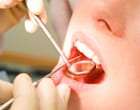 Central apnea in the city of Leeds, is starting to be recognised by dentists, as well as doctors now, as a life threatening problem. When we are awake, our breathing, blood flow and breathing are regulated by our lungs and heart, but if there is a problem, maybe sparked off by a nervous response, we can address the problem because we are conscious. Real problems can occur however, when we sleep, and the transition when we wake. Central apnea stems from the nervous system and any problems here can interrupt breathing and heart rate. We are at the mercy of these elements when we sleep because we are not conscious to cope with any problems should they arise. Any breakdown between the heart, lungs and brain can send panic through the nervous system and cause all four to falter. This is also a major problem for anyone with heart disease or neurological problems as the whole system is vulnerable. A way of ensuring that one of these elements is up and running is to ensure all the airwaves are free, and this can be remedied by getting a device from a dentist that allows you to breathe and reduce snoring. This will at least allow the rest of your breathing cycles and heart rate remain constant while you sleep.
Central apnea in the city of Leeds, is starting to be recognised by dentists, as well as doctors now, as a life threatening problem. When we are awake, our breathing, blood flow and breathing are regulated by our lungs and heart, but if there is a problem, maybe sparked off by a nervous response, we can address the problem because we are conscious. Real problems can occur however, when we sleep, and the transition when we wake. Central apnea stems from the nervous system and any problems here can interrupt breathing and heart rate. We are at the mercy of these elements when we sleep because we are not conscious to cope with any problems should they arise. Any breakdown between the heart, lungs and brain can send panic through the nervous system and cause all four to falter. This is also a major problem for anyone with heart disease or neurological problems as the whole system is vulnerable. A way of ensuring that one of these elements is up and running is to ensure all the airwaves are free, and this can be remedied by getting a device from a dentist that allows you to breathe and reduce snoring. This will at least allow the rest of your breathing cycles and heart rate remain constant while you sleep.





 At some point in most of our lives we will have battled with bad breath. Whether it is the occasional bout following a meal of certain foods, or a more long running problem, everyone who has experienced it knows that it is very unpleasant and not something they would like to have repeated. The knowledge that your mouth is emitting unpleasant smells that your peers might notice is very damaging to self esteem and might leave you worried about social occasions.
At some point in most of our lives we will have battled with bad breath. Whether it is the occasional bout following a meal of certain foods, or a more long running problem, everyone who has experienced it knows that it is very unpleasant and not something they would like to have repeated. The knowledge that your mouth is emitting unpleasant smells that your peers might notice is very damaging to self esteem and might leave you worried about social occasions. Being able to conduct yourself properly in social situations is an important part of modern life when networking and business meetings are so crucial. We often can’t help making mistakes with the things we say, for example, but you can do something about a problem like bad breath. When you meet a stranger, the last thing you’ll want them to think about you is disgust at the way unpleasant smells are coming from your mouth. The key to dealing with a bead breath problem is to understand the causes and then act appropriately with the help of your Central Leeds dentist.
Being able to conduct yourself properly in social situations is an important part of modern life when networking and business meetings are so crucial. We often can’t help making mistakes with the things we say, for example, but you can do something about a problem like bad breath. When you meet a stranger, the last thing you’ll want them to think about you is disgust at the way unpleasant smells are coming from your mouth. The key to dealing with a bead breath problem is to understand the causes and then act appropriately with the help of your Central Leeds dentist. Just as common as snoring but not nearly as talked about, grinding your teeth in your sleep can have fairly serious repercussions and ought to be taken seriously. As the condition concerns your mouth, your dentist is able to help in diagnosing teeth grinding and then formulating an appropriate response.
Just as common as snoring but not nearly as talked about, grinding your teeth in your sleep can have fairly serious repercussions and ought to be taken seriously. As the condition concerns your mouth, your dentist is able to help in diagnosing teeth grinding and then formulating an appropriate response. Bad breath can have a serious effect on your confidence. Going to parties or business meetings can become difficult as you find yourself shielding your mouth so that people don’t smell the unpleasant odours that can emanate. Many people experience it at one time or another but it is not something that needs to just be put up with because there a number of simple ways to deal with it effectively.
Bad breath can have a serious effect on your confidence. Going to parties or business meetings can become difficult as you find yourself shielding your mouth so that people don’t smell the unpleasant odours that can emanate. Many people experience it at one time or another but it is not something that needs to just be put up with because there a number of simple ways to deal with it effectively. Suffering from severely broken sleep patterns can have a serious impact on your life. If you experience such inconvenience it is possible that you have sleep apnea, a condition in which the muscles at the rear of the mouth relax during sleep and prevent adequate amounts of oxygen from reaching the lungs. There is a link between the condition and heart failure.
Suffering from severely broken sleep patterns can have a serious impact on your life. If you experience such inconvenience it is possible that you have sleep apnea, a condition in which the muscles at the rear of the mouth relax during sleep and prevent adequate amounts of oxygen from reaching the lungs. There is a link between the condition and heart failure. If you find that you are suffering from interrupted sleep there is a possibility that you have some form of apnea. This condition can be related to the mouth, which dentists have access to in their check ups. Read on if you are concerned about the condition.
If you find that you are suffering from interrupted sleep there is a possibility that you have some form of apnea. This condition can be related to the mouth, which dentists have access to in their check ups. Read on if you are concerned about the condition. Bad breath is something that most people will probably do their best to avoid. It can make it very socially difficult knowing that there are unpleasant smells emitting from your mouth because of bacteria. These bacteria hang around from the food you eat and are usually removed by brushing alone but some people find that that is not enough.
Bad breath is something that most people will probably do their best to avoid. It can make it very socially difficult knowing that there are unpleasant smells emitting from your mouth because of bacteria. These bacteria hang around from the food you eat and are usually removed by brushing alone but some people find that that is not enough. Bad breath is something we all dread. If you’ve ever suffered from it then you’ll know how it can seriously knock your confidence. Business meetings and parties become extremely awkward as you hope and pray that no-one will notice the unpleasant odours coming from your mouth. But it is not something that anybody has to put up with and your dentist will have all the information and advice to ensure that you can put an end to bad breath.
Bad breath is something we all dread. If you’ve ever suffered from it then you’ll know how it can seriously knock your confidence. Business meetings and parties become extremely awkward as you hope and pray that no-one will notice the unpleasant odours coming from your mouth. But it is not something that anybody has to put up with and your dentist will have all the information and advice to ensure that you can put an end to bad breath. If you are one of these people in the city of Leeds that live alone and suffer from stress or anger problems, there’s a very good chance you may grind your teeth (more commonly known as Bruxism), and you may also be completely unaware of the problem. But it’s not a problem to be ignored as it can lead to many problems throughout the upper body. The obvious symptoms of teeth grinding are aching jaws, headaches, neck pain and stress in the shoulders; if these symptoms prevail, you should consult your dentist. They may recommend tooth guards, splints or even dental overlays to avoid damage to the teeth, but the jaw will still undergo strain from the desire to grind. Bruxism is directly linked to stress and a hectic lifestyle. But once the problem is identified, it can be addressed. Stress management can reduce the level of teeth grinding through identifying the causes of stress and learning how to unwind after a heavy day. There are many relaxing techniques that can be used to help the body to de-stress before sleeping. If you go to sleep once you have unwound and calmed the body down, there chances of teeth grinding are greatly reduced.
If you are one of these people in the city of Leeds that live alone and suffer from stress or anger problems, there’s a very good chance you may grind your teeth (more commonly known as Bruxism), and you may also be completely unaware of the problem. But it’s not a problem to be ignored as it can lead to many problems throughout the upper body. The obvious symptoms of teeth grinding are aching jaws, headaches, neck pain and stress in the shoulders; if these symptoms prevail, you should consult your dentist. They may recommend tooth guards, splints or even dental overlays to avoid damage to the teeth, but the jaw will still undergo strain from the desire to grind. Bruxism is directly linked to stress and a hectic lifestyle. But once the problem is identified, it can be addressed. Stress management can reduce the level of teeth grinding through identifying the causes of stress and learning how to unwind after a heavy day. There are many relaxing techniques that can be used to help the body to de-stress before sleeping. If you go to sleep once you have unwound and calmed the body down, there chances of teeth grinding are greatly reduced.

